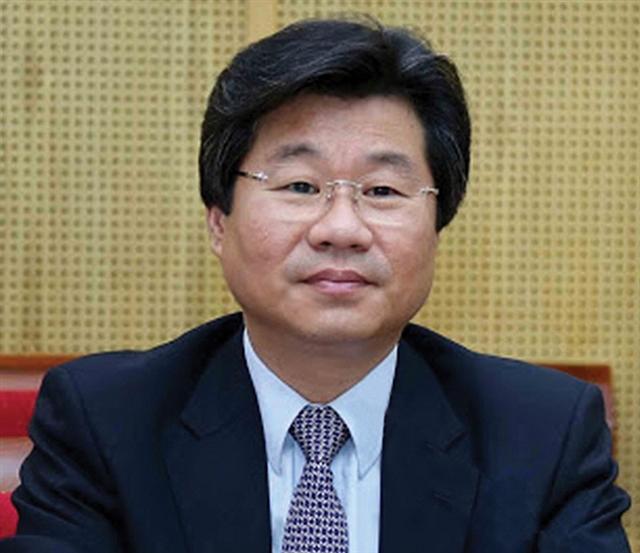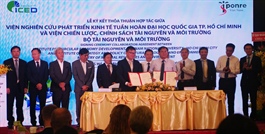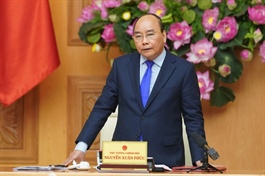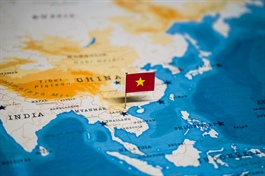An abundance of advantages to diversify ops into Vietnam
An abundance of advantages to diversify ops into Vietnam
Amidst the new wave of foreign investment and relocation after the pandemic, director general of the Ministry of Planning and Investment’s Foreign Investment Agency Do Nhat Hoang explained to VIR’s Nguyen Huong Vietnam’s outstanding advantages and how it can seize arising opportunities.

Do Nhat Hoang - Director general of the Ministry of Planning and Investment’s Foreign Investment Agency
|
In the context that numerous foreign investors are considering relocation to Vietnam, how can we best attain more foreign investment after the pandemic subsides?
Since 2018, due to the trade war between the United States and China, a lot of Chinese and overseas businesses that were located in China have moved to other countries. Some technical giants have already withdrawn from China to return to the United States or other countries which include similar conditions, while a number of Chinese investors also expanded to other countries to avoid the very high tariffs from the US. However, this is not a massive wave in a short time, and is just part of businesses’ China+1 strategy, meaning they will keep their projects in China while expanding investment out of this nation.
Moreover, COVID-19 has exposed the shortcomings of the supply chain for depending on a single economy. In order to cope with the interruption of their supply chains, multinational corporations have been moving their factories to other countries, in an attempt to restructure their supply sources. In this case, Vietnam is one of the promising lands with a lot of advantages. The Vietnamese government has already established a special taskforce to welcome investing giants, and the National Assembly has adopted the amended Law on Investment to further facilitate investment activities like cutting the list of industries and trades not open for investment, and adding some preferential investment industries and trades. The Ministry of Planning and Investment (MPI) also encourages real estate developers and localities to provide the best conditions to welcome giants to Vietnam, such as preparing enough clean land at reasonable price; being ready with infrastructure, transport, and power and water systems, as well as labour resources; supporting investors to implement administrative procedures; and suggesting good partners in auxiliary industries.
How can the wave of foreign investment relocation impact the Vietnamese industries?
The restructuring of supply chains after the trade war and COVID-19 increases the demand on a local developing supporting industry, logistics, and more. So it is necessary to accelerate the growth of local businesses, and improve products’ quality to meet the conditions of foreign investors’ supply chains. Besides tax incentives in the amended Law on Investment, the Foreign Investment Agency will build special incentives for foreign investors to help local companies join their supply chains.
What advantages does Vietnam have compared to other countries which are also crafting policies to mobilise foreign investment after COVID-19?
Vietnam has outstanding advantages. Its political stability consolidates investor confidence and Vietnam is one of the few countries maintaining high GDP growth at 6.5-7 per cent over the past decade.
In 2019, Vietnam was one of 20 countries reporting the highest growth at 7.02 per cent. In the first quarter of this year, despite a lot of difficulties caused by the global health crisis, the country still grew by 3.82 per cent, while most other countries did not grow or reported negative growth.
Manufacturing cost is affordable and the preferential investment policies are quite good compared to regional countries. Vietnam has also joined numerous free trade agreements.
Next, labour resources are abundant with a golden population structure and an extremely cheap cost. Vietnam is a promising market with more than 96 million people, ranking 15th in the world, and the investment climate is continuously reviewed and improved. The country is located in the centre of Asia, connecting China and ASEAN countries, and it takes only 3-5 hours to reach dynamic markets like China, India, Singapore, Japan, Taiwan, South Korea, and the ASEAN.
The business environment of the country has also improved significantly and was recognised by reputable organisations such as the World Bank, the World Economic Forum, and the US News & World Report.
After successfully controlling the pandemic, Vietnam is highly appreciated and emerging as the safest destination for investors. Moreover, recent trade deals such as the EU-Vietnam Free Trade Agreement, which has just been approved by the National Assembly, have become a modern expressway connecting Vietnam and the biggest economies elsewhere, as well as opening a huge space for co-operation and trade.
Besides, a series of laws related to investment, enterprises, and public-private partnerships, which were drafted by the MPI and just approved by the National Assembly, contribute to accelerating the relocation of high-tech projects that could generate much more added value and link local businesses in Vietnam.
























